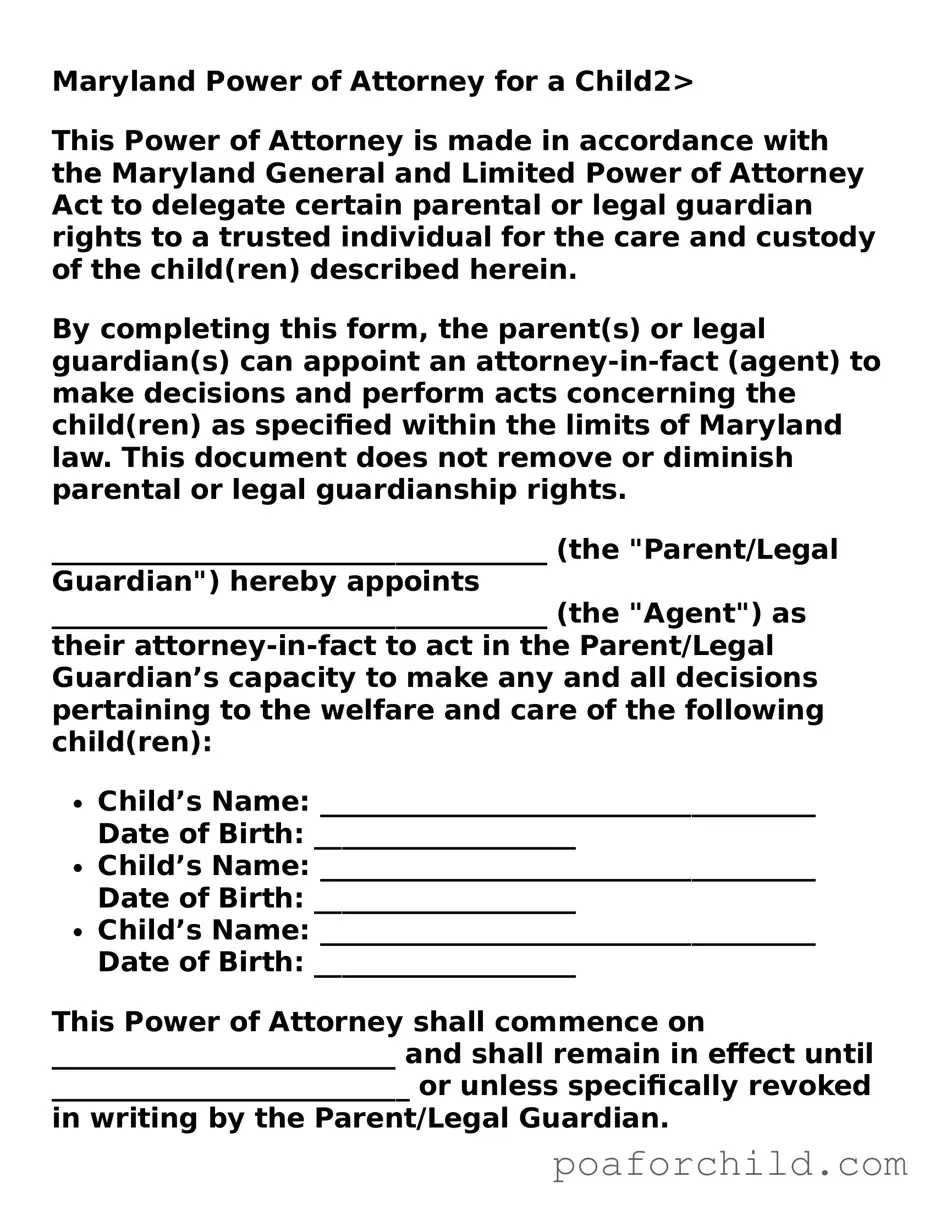Detailed Guide for Using Maryland Power of Attorney for a Child
Ensuring the well-being of a child is paramount for any guardian or parent. The Maryland Power of Attorney for a Child form is a legal document that temporarily grants an appointed adult the authority to make decisions on behalf of the child in the absence of the parent or guardian. This document can be essential in situations where parents or guardians are unable to be present due to travel, illness, or other circumstances. The process of filling out this form is straightforward but requires attention to detail. Below are the steps to complete the Maryland Power of Attorney for a Child form accurately, ensuring that the child's needs can be appropriately managed by someone they trust.
- Start by entering the date at the top of the form. This should be the current date on which you are filling out the document.
- Next, fill in the full legal names and addresses of both the grantor (the parent or current legal guardian) and the grantee (the person who is being given power of attorney).
- In the section dedicated to the child’s information, write down the child’s full name, date of birth, and address.
- Specify the duration for which the power of attorney will be valid. Include both the start date and the end date. If there isn't a specified end date, state how the document can be terminated.
- Outline the powers being granted with this document. Be as specific as possible about what decisions the grantee is allowed to make on behalf of the child. This could range from medical decisions to educational ones.
- Some sections require signatures. The parent or legal guardian should sign the document in the designated area. This action might need to be done in the presence of a witness or notary, depending on state requirements.
- If a notary public is required, ensure that the notary witnesses the signatures and fills out their section of the form, including their seal.
- Finally, provide a copy of the completed and signed document to the grantee. It’s also advisable to keep a copy for your records and provide another to the child’s other parent or guardian, if applicable.
After completing the Maryland Power of Attorney for a Child form, the appointed individual will have the legal authority to make decisions in the best interest of the child, within the scope specified by the document. It's important to have open and clear communication with everyone involved to ensure that the child’s welfare remains the focus. Should circumstances change, it can be necessary to update or revoke this document, always following the proper legal procedures to ensure the well-being and best interests of the child are accurately represented and protected.
